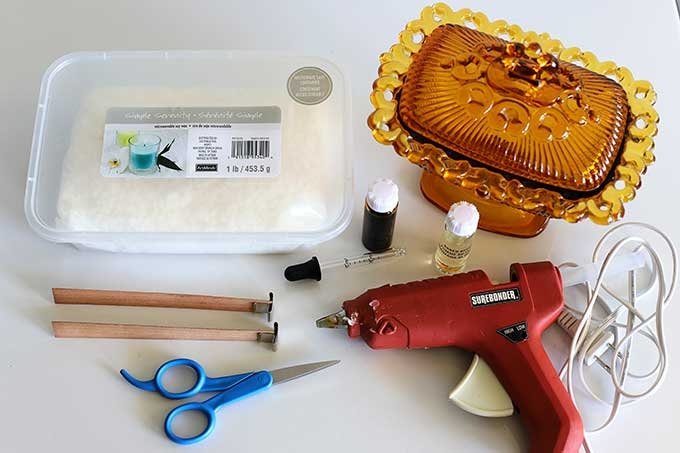Have you ever wondered how long after making candles can you burn them? There’s nothing quite like the anticipation of creating your own homemade candles and finally being able to light them for the first time. The process of making candles is not only a creative and enjoyable hobby, but it also involves a crucial step known as curing, which determines when your candles are ready to be burned.
When making candles, the curing process is essential for achieving optimal burn performance and fragrance throw. Curing allows the wax and fragrance to fully bond and settle, resulting in a cleaner and more even burn. But how long does this process typically take? Factors such as the type of wax used, any additives or fragrance oils included, and environmental conditions can all affect the curing time of your candles.
Understanding the importance of proper curing and knowing when your candles are ready to be burned is essential for both enjoyment and safety. In this article, we’ll delve into the curing process, explore the various factors that can impact curing time, discuss safety precautions when burning candles, offer tips for testing candle readiness, provide storage recommendations, and even outline recommended curing times for different types of candles.
Let’s explore everything you need to know about when to start burning your freshly made candles.
The Curing Process
What Is Curing
Curing involves allowing freshly made candles to rest and stabilize before being burned. During this time, the wax solidifies, and the fragrance oils have time to blend with the wax for a more robust scent when burned. Additionally, allowing the wick to absorb the wax properly during this time helps prevent issues like tunneling or uneven burning later on.
Curing Time Frame
The curing process typically takes about 24-48 hours for most types of candles. However, certain types of wax or candle additives may require a longer curing period. It’s important to follow specific instructions provided with your candle-making supplies or recipe to determine the exact curing time needed for your particular candle project.
Understanding how long after making candles can you burn them is essential for achieving the best results from your homemade creations. Rushing into burning candles before they have properly cured can result in poor performance and disappointment. Therefore, it’s important to exercise patience and allow your candles sufficient time to cure before enjoying their warm glow and soothing fragrance.
Factors Affecting Curing Time
The curing process is an essential step in candle making, as it allows the wax and fragrance to fully bond and the candle to reach its best burning potential. The length of time required for curing can vary depending on several factors, all of which can impact the overall quality of the finished candle.
Types of Wax
Different types of wax have different molecular structures, which can affect how long it takes for the candles to cure. For example, paraffin wax typically cures faster than soy wax due to its composition. Understanding the specific properties of the wax you are using will help you determine an appropriate curing time.
Additives and Fragrance Oils
The inclusion of additives and fragrance oils in candle making can also affect the curing time. Some additives or oils may require a longer period for the molecules to fully integrate with the wax, while others may expedite the process. It is important to follow manufacturer recommendations and conduct test burns to determine optimal curing times.
Other Environmental Factors
Factors such as temperature and humidity in your workspace can also impact how long it takes for your candles to cure. Warmer temperatures tend to speed up the curing process, while cooler temperatures may slow it down. Additionally, high humidity levels can increase moisture absorption in the candles, potentially prolonging their curing time.
Understanding these various factors is crucial in determining when your candles are ready for burning. By taking into account these considerations, you can ensure that your candles undergo proper curing before achieving their optimal burn performance.
Testing for Readiness
When it comes to making candles, one of the most anticipated moments is being able to burn them for the first time. However, before you can enjoy the warm glow and fragrant aroma of your new candles, it’s important to ensure that they have undergone the curing process. This step is crucial in ensuring that your candles perform optimally and safely when burned.
The curing process in candle making refers to the time needed for the wax, fragrance, and any additives to fully bond and set within the candle. Proper curing allows the candle to achieve its best scent throw, burn evenly, and have a longer burn time. Depending on various factors, including the type of wax used and the presence of additives or fragrance oils, the typical curing time for candles can range from 24 hours to two weeks.
Factors affecting curing time can vary widely based on a number of variables. The type of wax used, such as paraffin, soy, or beeswax, can influence how long it takes for a candle to cure. Additionally, the presence of additives such as colorants or fragrance oils can extend the curing period. It’s important to consider these factors when determining how long after making candles you can burn them.
In order to determine if your candles are ready to be burned, there are several testing methods you can use. One common method is known as the “burn test,” where you light a small portion of the wick to see how evenly and cleanly it burns.
Another method involves simply smelling the candle; if the scent throw is strong and appealing, it’s likely ready for use. Ensuring proper readiness before burning your candles not only enhances their performance but also contributes to a safer and more enjoyable burning experience for you as well.
Safety Precautions
When it comes to enjoying your newly made candles, safety should always be a top priority. Before you even think about lighting that wick, there are a few important safety precautions to consider. One of the key questions that often arises is “how long after making candles can you burn them?” The answer lies in the curing process. Curing is the period during which the candle is left to cool and harden after it has been made.
First and foremost, it’s crucial to ensure that your candles have fully cured before burning them. This process typically takes at least 24-48 hours for paraffin wax candles, while soy wax candles may require a longer curing time of 3-7 days. Factors such as additives and fragrance oils can also extend the curing time, so it’s essential to follow specific instructions based on the materials used.
Once your candles have properly cured, it’s important to take additional safety precautions before lighting them. Always trim the wick to about 1/4 inch before each use to prevent excessive flickering or smoking. This not only promotes a cleaner burn but also reduces the risk of potential hazards such as uneven melting or flaring.
In addition to wick maintenance, creating a safe burning environment is vital for enjoying your candles without worry. Ensure that your candle is placed on a stable surface away from drafts, flammable materials, and out of reach of children or pets. By following these safety precautions, you can enjoy your homemade candles with peace of mind while enhancing the ambiance of any space.
| Candle Type | Recommended Curing Time |
|---|---|
| Paraffin Wax Candles | 24-48 hours |
| Soy Wax Candles | 3-7 days |
Storage Recommendations
Storing newly made candles properly is essential to ensure that they cure effectively and remain in optimal condition for burning. Once the candles have been poured and set, it is important to allow them to cure before burning them. The curing process allows the wax, fragrance oils, and any additives to fully bond and create a stable candle that burns evenly and cleanly.
During the curing process, it is crucial to store the candles in a cool, dry place away from direct sunlight and extreme temperatures. This helps prevent any potential warping or discoloration of the candles as they cure. Additionally, keeping the candles in a well-ventilated area can help prevent any strong fragrance oils from becoming overpowering during the curing process.
It is recommended to cover the newly made candles with a clean cloth or paper towel to protect them from dust and debris while they cure. This also helps maintain the integrity of any decorative elements on the surface of the candle, such as glitter or dried botanicals. Proper storage not only ensures that the candles cure effectively but also helps preserve their appearance until they are ready to be enjoyed.
| Candle Type | Recommended Curing Time |
|---|---|
| Container Candles | 1-2 weeks |
| Pillar Candles | 2-3 weeks |
| Votive Candles | 1 week |
Recommended Curing Times for Different Candle Types
When it comes to enjoying the fruits of your labor after making candles, it’s important to exercise patience and allow the candles to cure properly before burning them. The curing process is a crucial step in candle making, as it allows the wax and fragrance oils to fully bond and settle, resulting in a better burn and stronger scent throw.
But how long do you need to wait before you can finally light up your masterpiece? Let’s explore the recommended curing times for different types of candles.
Recommended Curing Times
- Container Candles: Typically, container candles should cure for at least 24-48 hours before they are ready to be burned. This allows the wax to fully harden and ensures that the fragrance has had enough time to bind with the wax.
- Pillar Candles: For pillar candles, it’s best to wait a bit longer for proper curing. It is recommended to allow pillar candles to cure for 1-2 weeks before burning them. The larger size and thicker wax of pillar candles require more time for complete curing.
- Votive Candles: Votive candles generally need around 24-36 hours of curing time due to their smaller size and quicker cooling process.
It’s important to note that these are general recommendations, and the curing time may vary based on specific factors such as the type of wax used, additives included, or the particular fragrance oils involved in the candle making process. Always refer to the specific instructions provided with your candle making materials for optimal results.
Conclusion
In conclusion, the process of making candles involves not only the initial creative and crafty aspects but also the important step of allowing the candles to properly cure before burning. The curing process, as explained, is essential for ensuring that your candles burn cleanly and evenly, making for a more enjoyable experience overall.
While it can be tempting to light up your newly made creations right away, taking the time to allow them to cure will ultimately result in a better outcome.
Factors such as the type of wax, additives, and fragrance oils used can all affect the curing time of candles. It’s important to be patient and let nature take its course in allowing your candles to fully set and develop their intended aroma and appearance. This waiting period is well worth it when you finally get to experience the warm glow and soothing scents of a well-cured candle.
As mentioned in this article, safety precautions are crucial when it comes to burning candles. Taking the time to properly trim the wick and create a safe burning environment not only protects your home from potential hazards but also ensures that you’ll get maximum enjoyment from your candles.
By following these guidelines and being mindful of recommended curing times for different types of candles, you’ll be able to fully appreciate all the rewards that come with making – and eventually burning – your own handcrafted candles.
Frequently Asked Questions
Can You Burn a Candle Right After Making It?
Burning a candle right after making it is not advisable. The wax needs time to cool and harden properly before it can be safely lit. Igniting the candle too soon could lead to uneven burning and potential safety hazards.
How Long Should Candles Sit Before Burning?
Candles should ideally sit for at least 24 hours before being burned. This waiting period allows the wax to fully set and ensures that the wick stays centered. Patience is key in ensuring a clean, even burn for your homemade candles.
How Long Does It Take for a Homemade Candle to Harden?
The time it takes for a homemade candle to harden can vary depending on factors such as the type of wax used, size of the candle, and environmental conditions. In general, allowing the candle to cure for 24-48 hours will give it ample time to harden before use.
Rushing this process could result in a less-than-optimal burning experience.

Welcome to my candle making blog! In this blog, I will be sharing my tips and tricks for making candles. I will also be sharing some of my favorite recipes.





